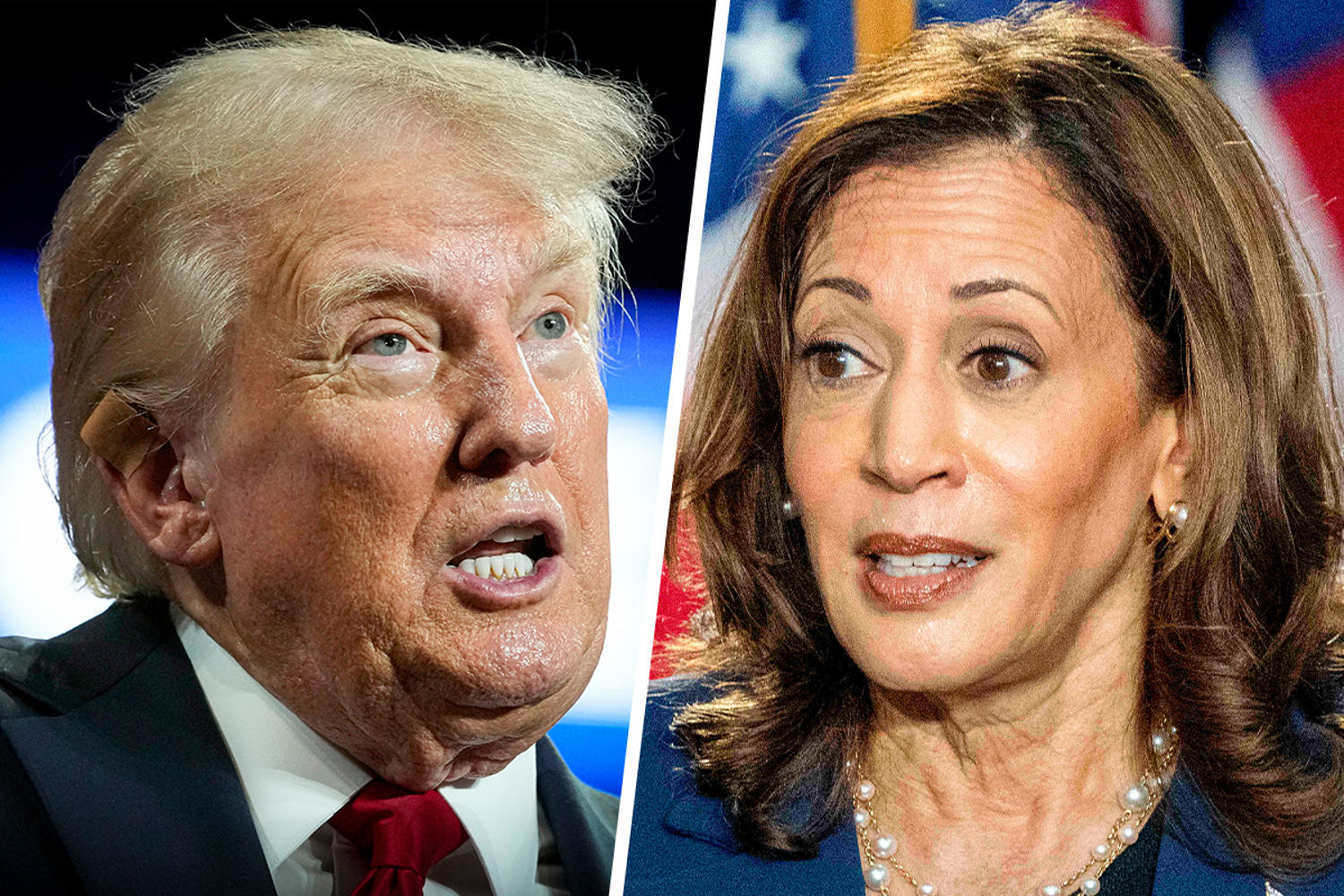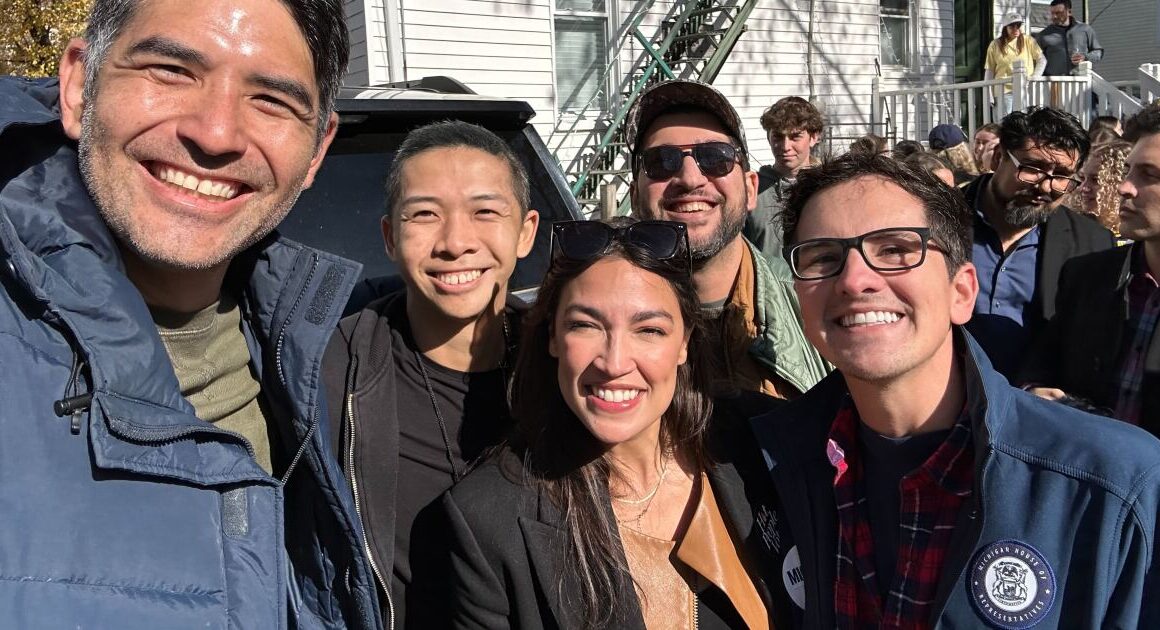
Donald Trump seems determined to convince voters that Vice President Kamala Harris is antisemitic. She’s not, and the former president’s attacks are as ugly as they are false, but the Republican appears preoccupied with pushing this line anyway.
During a speech last week, for example, the GOP nominee falsely said his likely Democratic rival is “totally against the Jewish people” — a curious claim about someone who’s married to a Jewish person — and as the Associated Press reported, Trump went even further yesterday.
Former President Donald Trump in an interview on Tuesday claimed Vice President Kamala Harris, who is married to a Jewish man, “doesn’t like Jewish people” and seemed to agree with a radio host who called second gentleman Doug Emhoff “a crappy Jew.”
The former president seemed quite worked up on the issue, ranting that Harris dislikes both Israel and Jews — it’s something “everybody knows,” Trump said, reality notwithstanding — while adding that Jewish voters are “fools” to vote Democratic.
The radio host, Sid Rosenberg, proceeded to say that Harris’ Jewish husband, second gentleman Doug Emhoff, is “a crappy Jew” and “a horrible Jew.”
And while Trump didn’t use those words himself, as an audio clip makes clear, he seemed to agree with the condemnations.
A Politico report described the comments as “bizarre.” A press statement from the Harris campaign, not surprisingly, went much further, describing the on-air exchange as “disgusting” and adding, “America is better than the fear, hate, and despicable insults of Donald Trump.”
At this point, we could spend a few paragraphs talking about how wrong the Republican’s attack is. We could also highlight the fact that Trump hasn’t even tried to substantiate his absurdities with evidence.
But as important as those points are, I’m struck by a larger point: Trump apparently believes he has credibility when it comes to antisemitism, but he really doesn’t.
As regular readers might recall, it was just four months ago, for example, when the GOP nominee invoked a familiar dual loyalty trope by claiming that Jewish voters who support Democrats hate Israel. To put it mildly, Jewish Democrats in Congress were not impressed.
An Axios report quoted Rep. Debbie Wasserman Schultz of Florida, for example, saying, “Trump demonstrates daily his lack of fitness for the presidency by spreading dangerous stereotypes and embracing antisemites.” Rep. Kathy Manning of North Carolina added that the former president’s rhetoric is “particularly disgraceful and dangerous at a time when Jews are facing dangerous levels of antisemitism nationwide.”
Rep. Jamie Raskin of Maryland issued an especially pointed response, noting, “Luckily I don’t know any Jews who look to Donald Trump for advice on how to be Jewish. After all, this is the guy who saw ‘very fine people on both sides’ of an antisemitic riot and entertained the neo-Nazi Holocaust denier Nick Fuentes over at his house at Mar-a-Lago for dinner.”
That larger pattern was of particular interest. During his 2016 campaign, for example, Trump spoke to the Republican Jewish Coalition and said, “You’re not gonna support me because I don’t want your money. You want to control your politicians.” He added, “I’m a negotiator — like you folks.”
Several months later, in the run-up to Election Day 2016, the Republican promoted antisemitic imagery through social media. In the closing days of the campaign, Trump again faced accusations of antisemitism, claiming Hillary Clinton met “in secret with international banks to plot the destruction of U.S. sovereignty in order to enrich these global financial powers.”
While in office, the then-president used some highly provocative rhetoric about Jews and what he expected about their “loyalties.” Trump also spoke at the Israeli American Council’s national summit, where he suggested Jewish people are primarily focused on wealth, which is why he expected them to support his re-election campaign.
There was also his ugly reaction to a racist event in Charlottesville in 2017, in response to torch-wielding bigots chanting, “Jews will not replace us.”
After his defeat, Trump kept this going, whining that Jewish voters “don’t love Israel enough,” dining with prominent antisemites at Mar-a-Lago and arguing that Jews need to “get their act together” and “appreciate” Israel “before it is too late.”
In late 2022, the former president went so far as to declare that Jewish leaders “should be ashamed of themselves” over their “lack of loyalty.” Around the same time, he added to the list, using related rhetoric about Jews with a documentary filmmaker.
In his earlier campaigns, Trump has struggled badly with Jewish voters. If he thinks lying about Harris will change that, the Republican probably ought to lower his expectations.
This post updates our related earlier coverage.
![]()





